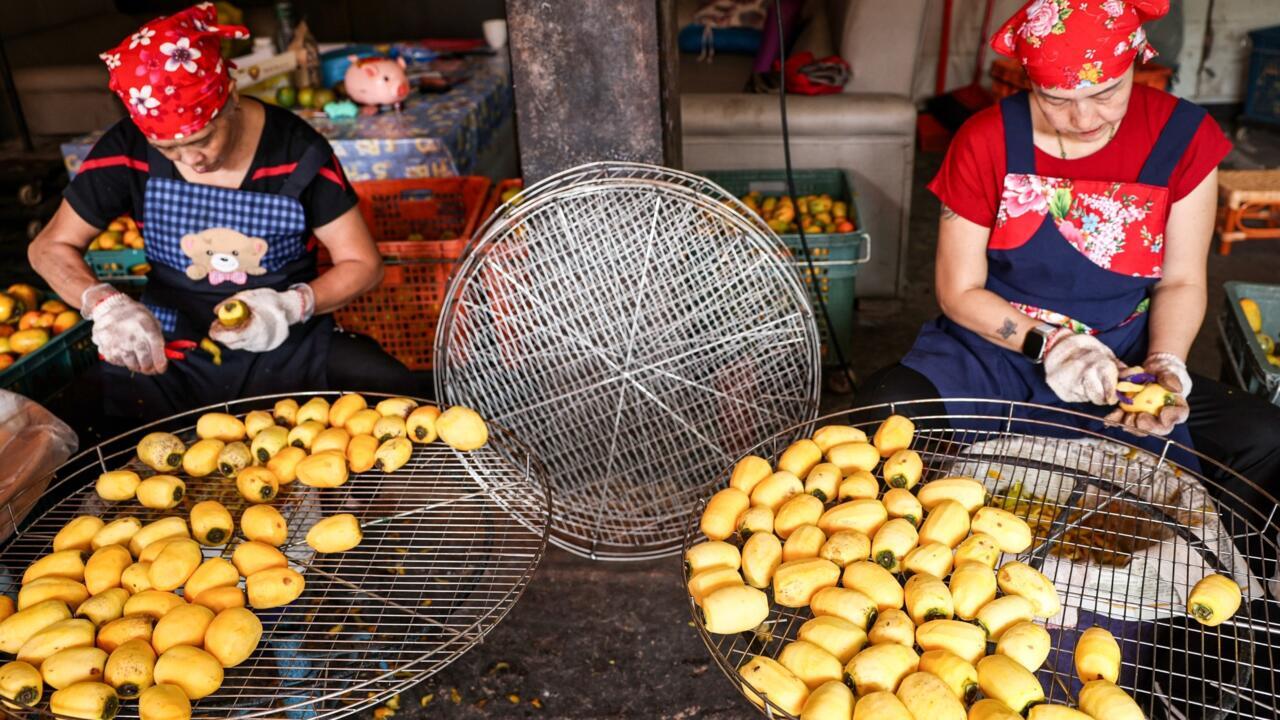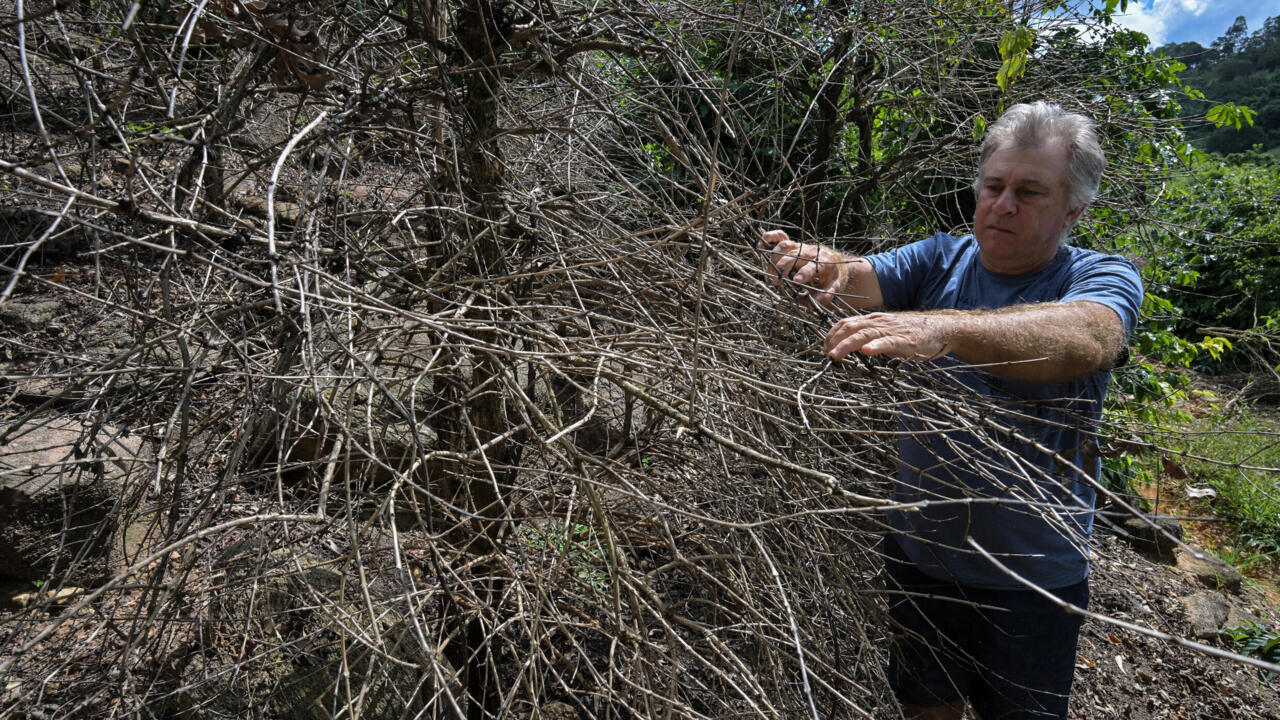The land area used for growing the fruit has shrunk to 4,700 hectares (11,600 acres) from more than 5,300 hectares a decade ago, and the number of persimmon farmers has also fallen, Su Tang-chao, director of the agency’s fruit and flower division, told AFP.
“In recent years, we have observed changes in production areas and fluctuations in yield and quality due to broader environmental changes, such as climate change and global warming,” Su said.
Fresh persimmons are harvested from September to December, with most of the fruit sent to Hsinchu county, south of Taipei, to be dried.
Nearly all of the fruit harvested every year is consumed in Taiwan.
Lo’s harvest is put into plastic crates, loaded into the back of a truck and taken to Weiweijia persimmon orchard where Lu Li-chien’s family has been growing and drying the fruit for more than a century.
Tourists flock to Lu’s farm to pose for photos among outdoor circular racks of fruit that shrivel and darken as they dry in the sun and wind — a traditional method used by Taiwan’s ethnic Hakka community.
Normally, fresh persimmons arrive at the Weiweijia farm every day, but Lu said this year’s harvest has been “extremely low” and deliveries have been every two days.
“Compared to previous years, we only have about 20 percent of the usual supply,” Lu, 68, told AFP.
“When I ask the farmers about the cause, they said the trees are not blooming properly, the flowers aren’t opening up as they should.”
Lu blames “climate abnormalities”, with the production problems worsened by ageing growers whose children have no interest in taking over the family orchard.
“We’ve never encountered such a situation,” he said of the poor harvest.






